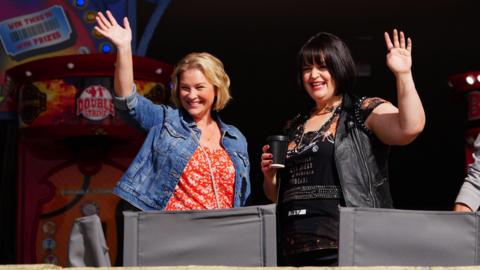TV and games composer Ben Randall is one of the freelancers hoping to ride out the storm.
"I had to sell a bunch of gear to get through," he said, reflecting on how he coped with a lack of work in November. "It was completely dry."
And he is not alone.
"Unless you're an A-list Hollywood composer, you're struggling."
Some new commissions have now arrived, but the 22-year-old from Port Talbot said he was anxious about the future.
"I'm not really good at anything else, so I don't have another game plan," he said.
There's also a mental strain on freelancers who face greater uncertainty than ever when looking for work.
"There's a psychological element," he added.
"I was quite lucky that when I left uni, I met all these brilliant people, and I was really busy for a few months, like most of the year. And then suddenly, dry. You get no replies.
"The events get either more exclusive or more expensive, and just trying to convince people online through email to hire you is becoming harder and harder."
Unscripted programmes, such as entertainment shows and documentaries, have been particularly badly hit by reduced commissioning from broadcasters.

